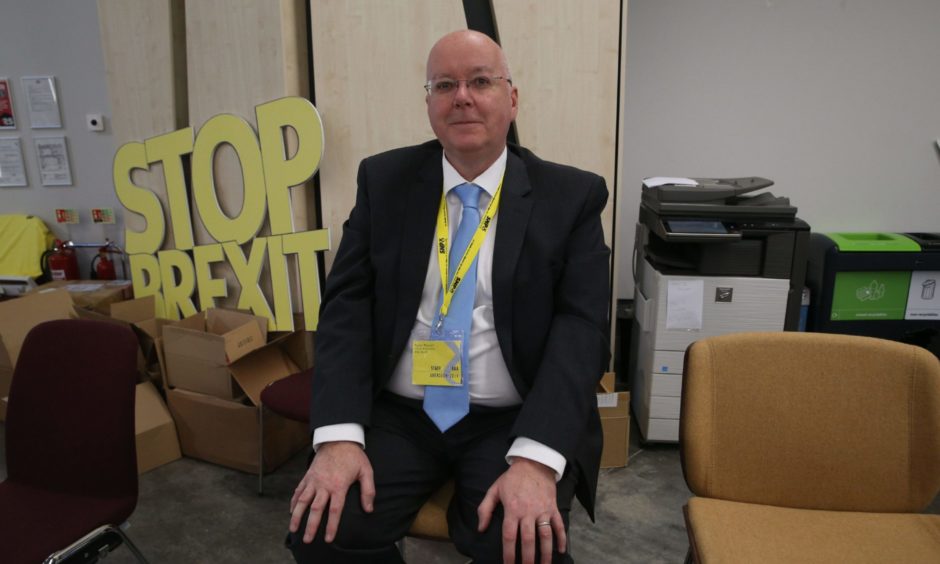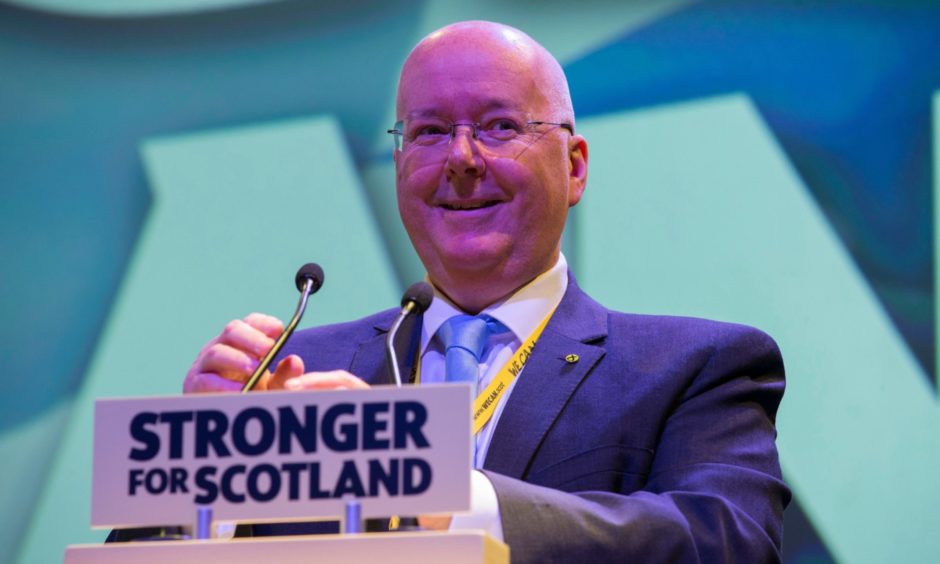SNP chief executive Peter Murrell has said he sent controversial messages calling for the police to be pressurised over the Alex Salmond case because he was “shocked” and “upset” at the scale of charges against his former colleague.
He revealed that he could not sleep at night after he learned of the allegations, and that he has not spoken to Mr Salmond since 2017.
The party boss, who is the husband of First Minister Nicola Sturgeon, spoke about his relationship with the former SNP leader as he gave evidence to the Holyrood inquiry investigating the botched government probe into allegations against Mr Salmond.
Mr Murrell also told the committee he was not at home when Ms Sturgeon met Mr Salmond on two occasions in 2018, although he later clarified that he had arrived home while the first discussion remained ongoing.
MSPs quizzed the chief executive on leaked text messages that showed that, on the day after Mr Salmond first appeared in court, Mr Murrell said it was a “good time to be pressurising” police and that the “more fronts he (Mr Salmond) is having to firefight on the better for all complainers”.
There was a great deal of upset that day. The previous day, you know I had been working with Alex for 30 years at that point, and I think we were all shocked by the scale of the charges that were brought against him.”
Peter Murrell
Asked if he could see why the messages might be viewed by some to be concerning, Mr Murrell said: “I can see that the language that I used was open to misinterpretation. It wasn’t about pressurising the police.
“There was a great deal of upset that day. The previous day, you know I had been working with Alex for 30 years at that point, and I think we were all shocked by the scale of the charges that were brought against him.
“So there was a great deal of upset the previous day. I know myself I didn’t really sleep that night. I came to the office and everyone was… you can just imagine everyone was quite gutted.”
Mr Salmond was cleared of all charges after a High Court trial this year.
Mr Murrell, who said he has not spoken to Mr Salmond since the 2017 election campaign, said he regretted the language he used in the text messages.
“Reflecting on these messages now, they seem quite out of character, so to me it suggests just how upset I was at the time,” he said.
“But it wasn’t about how the messages were interpreted, the context was that some people had raised concerns, had questions – you know, my upset was nothing in comparison to theirs – but they were seeking answers to things that only the police or Crown Office could answer.
“So it was really a more appropriate text message back at that point would have been to say, ‘they should seek the answers from the police’, or whatever, but that wasn’t the language I used, and that’s why I’ve said I regret using that, because it just doesn’t… that’s not the right word to use in that context.”
In written evidence, Mr Murrell had previously told the committee he first became aware that official complaints had been made about Mr Salmond when the allegations were made public in August 2018.
He said he “knew about” the earlier meetings between his wife and Mr Salmond at their home on April 2 and July 14 2018 and he had “the sense that something serious was being discussed”.
Giving evidence on Tuesday, Mr Murrell said: “I wasn’t at home, and I wasn’t aware of the capacity in which she was having the meetings. I wasn’t at home for either meeting.”
When you are married to the first minister, who is privy to lots of information, when she says she can’t talk about something, you don’t continue to say, ‘ah, but…’
However, later during the session, he said he did arrive home before the April 2 meeting had concluded, but that the couple did not discuss the nature of the conversation afterwards.
Mr Murrell, who has been party chief executive since 2000, said: “When you are married to the first minister, who is privy to lots of information, when she says she can’t talk about something, you don’t continue to say, ‘ah, but…’
“It just doesn’t happen. She has been a minister for a long time, and works very hard every day, and every weekend, and when we get precious time together, the last thing we want to be doing is rerunning days with each other, or whatever.
“So when she says that she can’t talk about something, that is the end of it and we move onto something else.”



